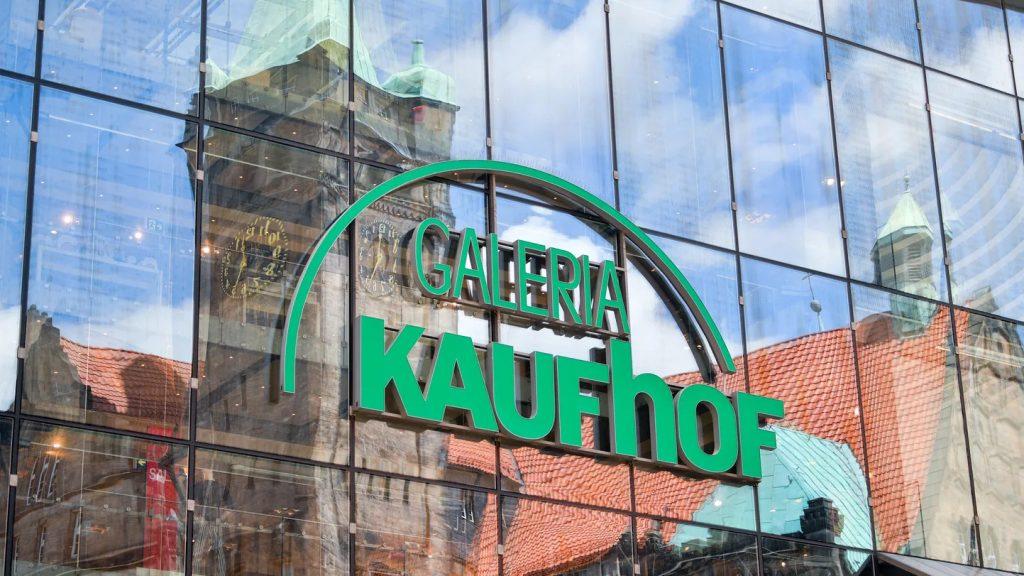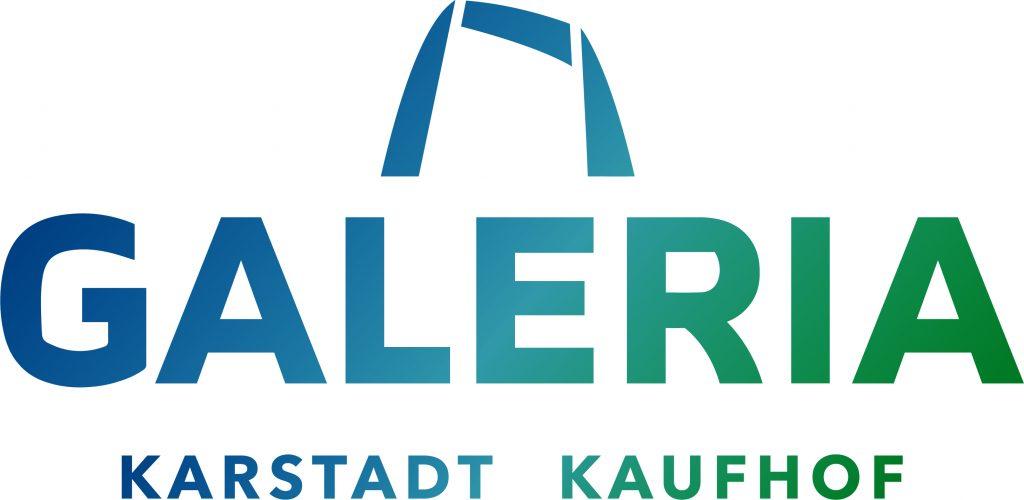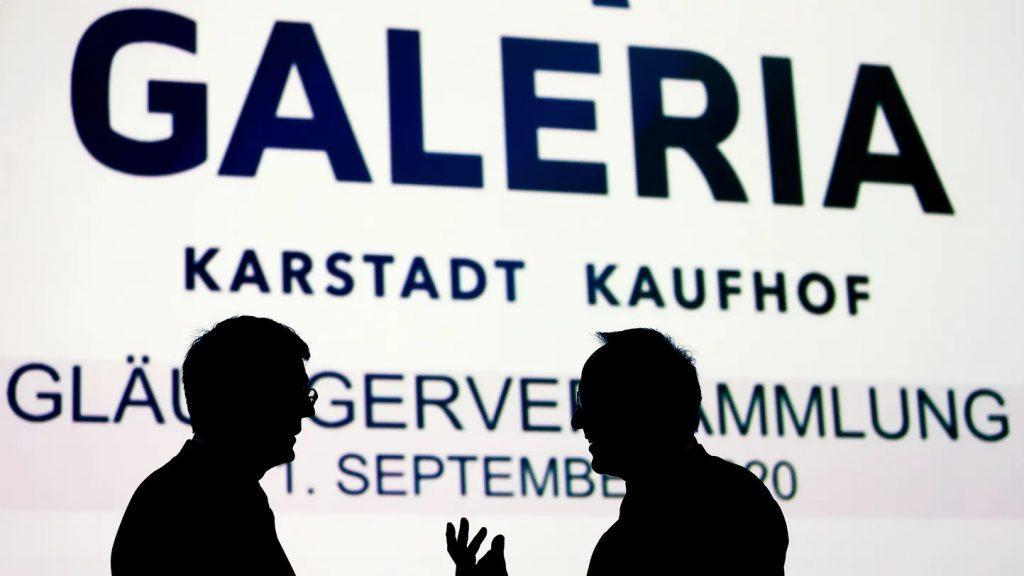- With the approval of the rescue plan, the way should be free for the renovation of the ailing department store giant.
- But the price is high. Thousands of employees lose their jobs.
And many suppliers and landlords will only receive a fraction of the money they are entitled to.
Germany’s last large department store chain Galeria Karstadt Kaufhof (GKK) gets another chance. The creditors’ meeting of the department store group has approved the insolvency plan drawn up by the company management under the supervision of the trustee Frank Kebekus to save the traditional company. The German press agency learned this from corporate circles.
In an employee letter sent after the creditors said yes, GKK boss Miguel Müllenbach said: “Today is the starting signal for a new beginning, because our company now has a healthy basis again and the prospect of a secure future.”
Creditors forego two billion euros
According to the plans of the company’s management, the bankruptcy procedure should be completed this month. The department store giant could then probably compete for customers again in October without any bankruptcy restrictions and debt-free, stressed Müllenbach. “We will then be stronger and better positioned than before the Corona crisis, which is expected to put some companies in trouble as early as autumn, which, unlike us, are heavily in debt.”
For the creditors, however, the move means foregoing a large part of the money that the department store group still owes them. Overall, the suppliers, landlords and other creditors have to forego more than two billion euros.
 In June, the main landlord, the entrepreneurial family Zechbauer, had announced that it will cut the rent by around three quarters by the end of 2021
In June, the main landlord, the entrepreneurial family Zechbauer, had announced that it will cut the rent by around three quarters by the end of 2021
The company had a turnover of €4.6bn in 2018. It had already secured a promise of €500m investment from owner Signa for redevelopment, on top of which a further emergency €140m was injected as a result of corona. Attempts to obtain financial help from state promotional bank KfW Kreditanstalt für Wiederaufbau as part of the state help programme failed to secure funding.
 Almost seven months after the merger of the two department store chains, the SIGNA Group acquired all shares in the GALERIA Karstadt Kaufhof department store group in June of 2019. This resulted in Germany’s number one department store chain (number two in Europe).
Almost seven months after the merger of the two department store chains, the SIGNA Group acquired all shares in the GALERIA Karstadt Kaufhof department store group in June of 2019. This resulted in Germany’s number one department store chain (number two in Europe).
In 2018, SIGNA and HBC had merged the two department store chains under SIGNA’s operative management. Since then, the management team has initiated a comprehensive integration process. The goal is to make the department stores future-proof and to create one of the leading omni-channel providers in the digital age.
As a part of the agreement, SIGNA also acquired all shares of the previously joint European real estate portfolio from HBC. Before the agreement, the two companies had each owned 50 percent of the portfolio.
Just a few months after the successful merger, a new umbrella brand was introduced, and the two department stores were united under it: ‘GALERIA Karstadt Kaufhof’. The brand’s core and promise: “We make life easier and shopping more fun for our customers – in the city and everywhere else.”
Verdi union criticizes management: Too little done for Galeria Karstadt Kaufhof branches
The trade union Ver.di, which represents most of the 28,000 GKK staff, accused the company of opportunistically pushing through long-desired closures and restructurings while blaming coronavirus. The Verdi union blamed the management for not having done enough to maintain branches. “We doubt that the management has done everything to save as many branches as possible,” said the head of the Verdi Federal Trade Group, Orhan Akman, to the German press agency.
Karstadt and Kaufhof are going on the offensive with a new management team
After the creditors agreed to the insolvency plan of Galeria Karstadt Kaufhof (GKK) – and thus saved the company from the otherwise safe end, the dealer is already planning the future – and is going on the offensive with a new management team.
As the company announced, the management team around CEO Miguel Müllenbach and CFO Guido Mager will be strengthened with four experienced managers. The new ones should start on October 1st. That is exactly the time at which GKK will also leave the bankruptcy proceedings.
Because as Müllenbach writes in a letter to the employees, the objection period against the insolvency plan expired without objections. “This means that there are no longer any hurdles for the restart, the protective shield procedure will come to an end as planned at the end of September,” explains Müllenbach in the employee letter.
The chairman of the supervisory board of Galeria Karstadt Kaufhof, Wolfram Keil, also spreads optimism: “Galeria Karstadt Kaufhof will not only successfully cope with the protective shield proceedings at record speed, we also used the time to inspire real top people for us,” he says in the Announcement to expand the management cited. The new appointment is still subject to the approval of the Supervisory Board in its next meeting, which should, however, only be a matter of form.
For the first time, a woman will also move into the management of GKK. Karin Busnel-Knappertsbusch will in future be responsible for the entire category management and purchasing control, i.e. the compilation of the range. It comes from the Swiss Manor AG, which operates 59 department stores and to which brands such as Lacoste, Gant and The Koopels belong. Before that she also worked for Jil Sander and Hugo Boss .
Engelbert Thulfaut is to take over the core area of sales, marketing and real estate. He was in the management of the Düsseldorf fashion chain Peek & Cloppenburg for more than 15 years, most recently as head of sales.
Change of boss in a difficult phase
Dirk Lessing will be the new Chief Operating Officer and in this role will be responsible for logistics, IT and human resources. Until the end of 2019, he was a member of the Management Board of the Haniel subsidiary Takkt AG. The office furniture retailer is listed in the SDax.
The new management team is completed by Andreas Hink. He was previously Chief Digital Officer of the Swiss department store chain Globus, which, like GKK, belongs to Signa Holding owned by Austrian investor René Benko. Hink is also to lead the digital business at GKK.
In April, Galeria Karstadt Kaufhof applied for protective shield proceedings to be opened under insolvency law. The company, which had been ailing for years, was even more disturbed by the business closings ordered as a result of the pandemic. Part of the insolvency plan is the closure of around a third of the 172 branches.
It was precisely during the difficult phase of the store closings that the long-standing Karstadt boss Stephan Fanderl left the company. According to circles, he should have fallen out with owner Benko. For this reason, too, the management reorganization has now become necessary.
“With our new colleagues we will act as a team, full of trust and on an equal footing,” emphasized Miguel Müllenbach, who took over as CEO after Fanderl left. “A new culture is moving in, which will be extremely important for our success as the inner-city marketplace of the future.”
After the creditors had agreed to the insolvency plan and thus waived more than two billion euros, Müllenbach wrote in a letter to the employees: “Today is the starting shot for a fresh start, because our company now has a healthy basis and the prospect of a secure future. ”The newly formed management should now implement this new beginning.
These Galeria Karstadt Kaufhof branches have to close
A total of 50 branches of the Galeria Karstadt Kaufhof department store chain are closing.
The original plan was to close 62 branches, but now twelve fewer branches have to close.
The redevelopment of Galeria Karstadt Kaufhof (GKK) is getting serious: 50 of the 172 branches, plus a department store that has not yet been opened in Berlin-Tegel and two bargain centers are to be closed. After negotiations with the landlords, however, the company announced on Friday that it would continue to operate six more department stores. This saved 12 branches. Around 750 employees will thus keep their jobs.
The group also wants to close 20 of 30 branches of the subsidiary Karstadt Sports and up to 24 branches of Karstadt Feinkost. The background to this is that Karstadt Kaufhof has been stumbling for a long time – the group is facing competition from online trading, but also the changed customer behavior and strong competition from smaller and more specialized retailers.
Karstadt Kaufhof: Which branches are closing?
The closings at Galeria Karstadt Kaufhof affect locations in almost all federal states. Only Thuringia is spared from the branch closings. These 56 branches of the Galeria Karstadt Kaufhof chain have to close:
Berlin Charlottenburg (Karstadt)
Berlin Gropius Passage (Karstadt)
Berlin Hohenschönhausen (Kaufhof)
Berlin Müllerstrasse (Karstadt)
Berlin Tempelhof (Karstadt)
Bonn (Karstadt)
Braunschweig (Kaufhof)
Bremen (Kaufhof)
Bremerhaven (Karstadt)
Bruehl (Kaufhof)
Dessau (Karstadt)
Dortmund (Kaufhof)
Düsseldorf Schadowstrasse (Karstadt)
Düsseldorf Wehrhahn (Kaufhof)
Food (Kaufhof)
Essen (Karstadt)
Flensburg (Karstadt)
Frankfurt Hessen-Center (Kaufhof)
Frankfurt Zeil (Karstadt)
Fulda (Kaufhof)
Goeppingen (Kaufhof)
Gummersbach (Karstadt)
Gütersloh (Karstadt)
Hamburg Bergedorf (Karstadt)
Hamburg Mönckebergstrasse (Kaufhof)
Hamburg Wandsbek (Karstadt)
Hamm (Kaufhof)
Hannover Georgstraße (Karstadt) – read more at the “ Hannoversche Allgemeine Zeitung ”.
Ingolstadt (Kaufhof)
Iserlohn (Karstadt)
Cologne Weiden (Kaufhof)
Landau (Kaufhof)
Lübeck (Karstadt) – read more in the “ Lübecker Nachrichten ”.
Mainz (Karstadt)
Mannheim N7 (Kaufhof)
Mönchengladbach Reydt (Karstadt)
Munich Am Nordbad (Karstadt)
Munich OEZ (Karstadt)
Munich Stachus (Kaufhof)
Neubrandenburg (Kaufhof) – read more at the “ Ostsee-Zeitung ”.
Neumunster (Karstadt)
Neunkirchen (Kaufhof)
Neuss (Kaufhof)
Norderstedt (Karstadt)
Osnabrück (Kaufhof)
Stuttgart Bad Cannstatt (Kaufhof)
Sulzbach MTZ (Karstadt)
Trier Simeonstrasse (Karstadt)
Witten (Kaufhof)
Worms (Kaufhof)
In addition, the two bargain centers in Gießen and in Frankfurt’s Northwest Center are closing, as is the not yet opened branch in Berlin Tegel.
These branches will not be closed
After negotiations with the landlords, Galeria Karstadt Kaufhof announced on Friday that it would be closing six fewer branches than originally planned. Six more branches, which will be saved from the end, were added on July 17th. These are the following branches:
Dortmund (Karstadt)
Nuremberg Lorenz Church (Karstadt)
Goslar (Karstadt)
Potsdam (Karstadt)
Chemnitz (Kaufhof)
Leverkusen (Kaufhof)
Berlin-Lichtenberg (Ringcenter) (Kaufhof)
Bielefeld (Karstadt)
Hamburg (Alstertal shopping center) (Kaufhof)
Leonberg (Karstadt)
Nuremberg-Langwasser (Karstadt)
Singing (Karstadt)
Akman accused management of “still not disclosing” the criteria for closing houses. This lack of transparency leaves many questions unanswered. The management acted “on the back of those affected”. Verdi still sees opportunities to get more houses. “We won’t give up hope until the last lights go out,” said Akman.
Many municipalities fear the city centers will be deserted
Local authorities across Germany have been expressing their alarm at the potential loss of such key anchor retailers as the GKK department stores, while still uncertain as to which stores the GKK management are initially targeting for closure.
Helmut Dedy, General Manager of the Association of German Cities (Deutscher Städtetag), told the German Press Agency (dpa) that department stores play a key role in attracting people to the city centres, with all the spinoff benefits for the retail trade in their surroundings.
However, consultants who know the German retail trade well are skeptical about the damage done to inner cities as shopping locations should the GKK outlets disappear. Even before the coronavirus, Kaufhof and Karstadt have been in trouble with their retail concepts for years and have only staved off bankruptcy to date through a variety of merger and shielding processes.
Several illustrious names of the German department store scene including Horten, Hertie and original singular versions of Karstadt and Kaufhof themselves have been consigned to history in the last decade. The classic four-to-five storey department story has been under pressure for a long time, with experts saying for years that a two-storey model is more than adequate in most cases. (D-Day for German department stores has been predicted as long as REFIRE has been publishing reports on German retail real estate, and that’s at least fifteen years…)
There is much discussion as to what to do with such prized property assets in premium downtown locations. Replacing department stores with shopping centres is viewed as not viable, except in certain isolated and largely provincial cases. Germany already has more than enough shopping centres, and most of them are struggling with structural change in their industry that’s not going to disappear any time soon.
Several studies are underway to examine the feasibility of re-purposing of department stores to micro-logistics sites, for which department stores with their high ceilings and strong load-bearing floors could be eminently suitable.
Conversion to office buildings is also often sensible, with a good example being the transformation by Signa of one of its former Kaufhof department stores at Berlin’s Ostbahnhof Station into offices for online retailer Zalando.
In Leipzig, conversion of an old Karstadt department store in Petersstrasse, which closed its doors at the beginning of 2019, is well under way to create a new combination of retail, gastronomy, offices and leisure use. Although the closure faced stiff opposition at the time, it seems the public is now warming to the prospects of the new opening.
However – Berlin and Leipzig, these are relatively prosperous and dynamic urban locations. Politicians and developers from the Deutscher Städtetag fear that such re-adaptation might not work in the locations that are now most likely to be in the front line of GKK’s closure plans – namely, weaker and more vulnerable regional locations. In a recent article in daily newspaper Die Welt, Norbert Portz, the infrastructure spokesman for the Städtetag alliance, described department stores as “system-relevant” for the inner cities, without which far less customers would generally be drawn into the downtown areas.
Meanwhile, the German Council of Shopping Places GCSP (previously German Council of Shopping Centres, GCSC), with its over 750 members, has increased its demands for tax breaks for bricks-and-mortar retailers who are experiencing unprecedented suffering under corona. Big names like Esprit, Promod, Tally Weijl, Sinn, AppelrathCüpper, Hallhuber, and Mister Minit are all staring into the abyss, and threatening widespread closure of their outlets. All are in determined negotiations with their landlords, such as mall operator ECE or Deutsche Euroshop.
Other well-known chains who have already started insolvency proceedings include outdoor specialist McTrek, fashion chains Colosseum, AppelrathCüpper, Promod and Sinn, and restaurant chains Maredo and Vapiano, among others. Footwear chain Foot Locker has closed all its 74 Runners Point stores, without filing for insolvency, but because it sees little future for the brand in the immediate competitive future. It’s clear that there’s a lot more pain ahead.
Experts such as the long-time professor at the Bauhaus University Weimar predict that 20 to 30 percent of the retail space in the pedestrian zones will be vacant – within the next few years. According to the latest plans, more than a hundred Galeria-Kaufhof-Karstadt branches across Germany will remain in place, but for experts it is only a matter of time before they are also closed.
And they are not the only ones: The ailing fashion group Esprit announced this week that it would close half of its stores in Germany – a total of 50 branches. Around 1,100 jobs in the shops and administration are to be cut, and a further 100 jobs are to be cut in Asia.
Big names don’t protect against bankruptcy
Regardless of whether Esprit, Appelrath Cüpper or Sinn Leffers: Well-known names in the textile industry no longer protect against falling. Almost every week since the outbreak of the Corona crisis, well-known fashion manufacturers and textile retailers have had to seek rescue in protective shield proceedings or file for bankruptcy right away. “We run the great risk that traditional houses that have shaped our inner cities for many decades go into bankruptcy,” warned Josef Sanktjohanser, President of the German Trade Association (HDE).






